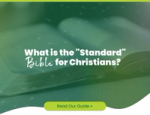Ash Wednesday - movable feast or meaningful famine
Laura White - Eden Children's Resources Specialist
Ash Wednesday: the first day fasting in Lent and 46 days before the feast of Easter Sunday. Always on a Wednesday, but because the date of Easter changes year on year, the actual date of Ash Wednesday can be on any Wednesday between 4 February and 10 March.
The date of Easter changes year on year because it’s historically tied to both the lunar and solar calendar. It all goes back to when the world moved from a calendar set by a Roman Emperor (Julius Caesar) one set by a Pope (Gregory XVIII).
Why does Easter keep changing?
Easter Sunday is set as the next Sunday following the first full moon after the vernal equinox. And if that’s not confusing enough, the full moon involved is not the ‘astronomical’ full moon – one you might actually see, but an ‘ecclesiastical’ full moon determined from tables. The ecclesiastical view of the universe is more or less in step with the reality but not quite. Make of that what you will...
The ‘vernal equinox’ – when night and day are exactly the same length, is ‘fixed’ as 21 March. That means Easter can fall any day after 22 March but no later than 25 April, at least in Western Christianity. Even that doesn’t always work out. Sometimes the ‘astronomical’ full moon actually does fall on the same day as the ‘astronomical’ equinox and before the fixed ‘ecclesiastical’ full moon determined from tables.
Upto 4 Easters every year?
On top of that, there’s the effect of the International Date Line which splits the world into two simultaneous days. This means Easter could be on a different Sunday on each side of the line. In Eastern Christian traditions, continued adherence to the Julian religious calendar means Easter Sunday in 2012 falls a full week later than in the west, on 15 April.
This means that if you were prepared to travel around a bit, and adopt an ecumenical approach to Christian traditions worldwide, you could indulge yourself in rather more than your fair share of Easter eggs with two western Easters and at least two Eastern ones.
Is Lent about more than giving up?
Ash Wednesday, whenever it falls and which ever one you choose to celebrate is the day for receiving on your forehead the mark of the cross made with the ash of last year’s Palm Sunday crosses. The act is said the echoes the ancient Eastern tradition of throwing ashes over your head to signify repentance.
It’s not only the date of Easter that keeps changing. Over the centuries the Christian church has adapted its festivals to convert the ancient culture and traditions of the people adopting the faith. In an ever changing world, churches alive to local needs are continually looking for new ways to connect and communicate with their community.
Ash Wednesday: The Trivia File
According the pre New Testament apocryphal book of Maccabees, Jewish freedom fighters prepared for battle by fasting, wearing sackcloth and sprinkling ashes on their heads and clothes.
Latest Blogs

Gifts
Finding Your Symbol of Faith: A Guide to Christian Cross Necklaces
Looking for the perfect symbol of faith? Explore our guide to Christian cross necklaces, from rustic wooden designs and sturdy men's chains to elegant silver pendants.

Gifts
The Best Christian Gifts for Under £20
Looking for a meaningful gift that won't break the bank? Explore our guide to the best Christian gifts under £20, from inspiring journals to beautiful home decor.

Gift Guide
15 Confirmation Gift Ideas for Boys and Girls
Celebrating a confirmation? Discover 15 meaningful gift ideas for boys and girls, from youth Bibles and jewellery to inspiring journals and keepsakes.

Bible
30+ Powerful Quotes About the Bible (For Inspiration in 2026)
Looking for inspiration? Discover a curated collection of the most powerful quotes about the Bible, from famous historical figures to modern theologians and Scripture itself.

Bibles
What is the "Standard" Bible for Christians?
Is there an "official" Bible that all Christians use? We explain the difference between the NIV, KJV, and ESV, and help you find the standard text for your church or personal reading.

Bible
"I Keep Failing to Read the Bible" – 5 Tips to Make the Habit Stick
Do you start a Bible reading plan only to quit a few weeks later? Stop the cycle of guilt. Here are 5 psychological tips and practical changes to help you build a Bible habit that actually lasts in 2026.
